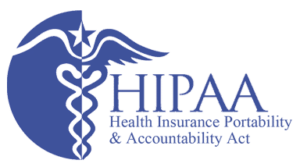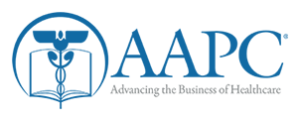The intent of the No Surprises Act, signed into law in 2020, is to protect patients who receive care from out-of-network providers at in-network facilities and air ambulance services from exorbitant and unexpected balance billing. The problem is that not everyone agrees with the rules governing the standards independent dispute resolution (IDR) entities use to determine payment resolutions between providers and payers.
The rules governing the IDR process continue to be challenged in court, which has really held up the works, but there is some good news: Beginning Feb. 27, the Centers for Medicare & Medicaid Services (CMS) announced in a Feb. 24 notice, certified IDR entities were allowed to resume processing payment determinations. But only for claims with dates of service before Oct. 25, 2022. And the arbiters must use IDR standards in the October 2021 interim final rules, as revised by the opinions and orders of the U.S. District Court for the Eastern District of Texas.
History of the No Surprises Act
The No Surprises Act has only been in effect since Jan. 1, 2022, but already it has quite a history. Here’s a timeline of events:
July 2021 – U.S. Departments of Health and Human Services, Labor, and the Treasury (Departments) release Requirements Related to Surprise Billing; Part I.
October 2021 – The Departments release the Requirements Related to Surprise Billing; Part II.
Feb. 23, 2022 – In Texas Medical Association, et al v. United States Department of Health and Human Services (Case No. 6:21-cv-425), the U.S. District Court for the Eastern District of Texas (District Court) orders portions of the October 2021 interim final rule governing the IDR process to be stricken.
July 26, 2022 – In LifeNet, Inc. v. United States Department of Health and Human Services (Case No. 6:22-cv-162), the District Court orders portions of the October 2021 interim final rules to be stricken.
Aug. 26, 2022 – The Departments issue final rules titled Requirements Related to Surprise Billing: Final Rules, with an effective date of Oct. 25, 2022.
Feb. 6, 2023 – In Texas Medical Association, et al v. United States Department of Health and Human Services, et al (Case No. 6:22-cv-372), the U.S. District Court for the Eastern District of Texas (District Court) orders portions of the October 2021 interim final rules to be stricken.
There are more cases pending decisions, so the dispute about how to determine payment resolutions is far from over.
Current Status of the IDR Process
In the Feb. 23, 2022, case Texas Medical Association v. U.S. Department of Health and Human Services, the plaintiffs contended that the IDR process favors payers because the metric used to determine payments is set by health plans. The District Court ruled in favor of the Texas Medical Association’s (TMA’s) claim that the interim final rule was biased.
The District Court held:
The plaintiffs have standing to challenge the Departments’ September 2021 interim final rule implementing the No Surprises Act;
The Rule conflicts with the unambiguous terms of the Act; and
The Departments improperly bypassed notice and comment in implementing the challenged portions of the Rule.
The judge ordered the Departments to vacate certain portions of the Requirements Related to Surprise Billing; Part II interim final rule.
As a result of the LifeNet decision, effective July 26, 2022, certified IDR entities may not apply the vacated standard in reaching a payment determination in any claims dispute related to air ambulance services.
The Feb. 6, 2023, opinion and order from the District Court does not apply to disputes involving items or services furnished before Oct. 25, 2022. CMS has instructed IDR entities to continue holding payment determinations for items or services furnished on or after Oct. 25, 2022, until further notice. On Feb. 10, CMS instructed certified IDR entities to recall any payment determinations issued on or after Feb. 6, but to continue working through other parts of the IDR process.
All other federal IDR process timelines continue to apply. “Disputing parties should continue to engage in open negotiations and all other aspects of the federal IDR process, including submitting fees and offers,” CMS states in the notice.
IDR Cases are Piling Up, and so are the Costs
The Departments published an initial report on the IDR process for the period between April 15, 2022, and Sept. 30, 2022. According to the report, 90,078 payment disputes were filed during that period. Of those, 86,807 involved out-of-network emergency or non-emergency items or services and 3,271 involved out-of-network air ambulance services. This figure has since been updated to 164,000 disputes between April 15, 2022 and Dec. 5, 2022.
On Dec. 23, 2022, CMS announced that the Departments were amending prior 2023 guidance to increase the administrative fee for the IDR process from $50 to $350 in 2023, “due to supplemental data analysis and increasing expenditures in carrying out the Federal IDR process since the development of the prior 2023 guidance.” Also beginning Jan. 1, 2023, certified IDR entities are permitted to charge a fee for single determinations in upwards of $700 or up to $938 for batched determinations.
For more information, visit: https://www.aapc.com/blog/87541-idr-payment-determinations-resume-under-no-surprises-act/




